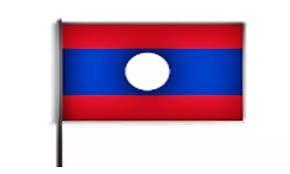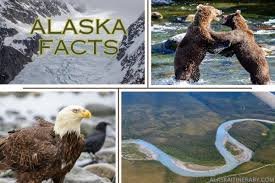Alaska – The Last Frontier of the United States
Alaska, situated in the northwest extremity of the United States, is often referred to as “The Last Frontier.” This nickname aptly captures the state’s rugged, untouched wilderness, vast expanses of land, and unique cultural heritage.

Why this News is Important
Alaska’s Unique Identity Alaska’s designation as “The Last Frontier” highlights its distinctiveness within the United States. Understanding the significance of this nickname provides insight into the state’s history, geography, and societal dynamics.
Tourism and Economic Implications For students preparing for government exams, knowledge of Alaska’s nickname is crucial, particularly for positions involving tourism, geography, or economic development. Understanding the allure of Alaska as the “Last Frontier” can be beneficial in various administrative roles.
Cultural and Environmental Preservation Alaska’s nickname underscores the importance of preserving its natural beauty and indigenous cultures. Government officials, especially those involved in environmental policy or indigenous affairs, should be aware of the state’s unique status and the challenges it faces.
Historical Context
Alaska’s moniker as “The Last Frontier” traces back to its history as a remote and untamed territory. Acquired by the United States from Russia in 1867 through the Alaska Purchase, the region remained largely undeveloped for decades.
During the late 19th and early 20th centuries, Alaska attracted prospectors during the Klondike Gold Rush and later became a strategic military outpost during World War II. Despite these periods of activity, much of Alaska’s land remained untouched and uninhabited, contributing to its frontier mystique.
Today, Alaska continues to be celebrated for its pristine wilderness, diverse wildlife, and unique cultural heritage, drawing visitors from around the world.
Key Takeaways from “Alaska – The Last Frontier of the United States”
| Serial Number | Key Takeaway |
|---|---|
| 1 | Alaska is often referred to as “The Last Frontier.” |
| 2 | The nickname highlights the state’s rugged wilderness. |
| 3 | Alaska’s unique cultural heritage adds to its allure. |
| 4 | Understanding Alaska’s nickname is beneficial for tourism and economic development. |
| 5 | Preservation of Alaska’s environment and culture is important for its sustainable development. |
Important FAQs for Students from this News
Q: Why is Alaska called “The Last Frontier”?
A: Alaska is called “The Last Frontier” due to its vast, untouched wilderness and unique cultural heritage, symbolizing the state’s status as one of the last remaining frontiers of exploration and development.
Q: What historical event led to Alaska being referred to as “The Last Frontier”?
A: Alaska’s acquisition by the United States from Russia in the Alaska Purchase of 1867 contributed to its designation as “The Last Frontier.”
Q: How does Alaska’s nickname impact its tourism industry?
A: Alaska’s nickname, “The Last Frontier,” enhances its appeal to tourists seeking adventure and exploration in remote, pristine environments.
Q: What are some key sectors where knowledge of Alaska’s nickname is important for government exams?
A: Government exams related to tourism, geography, economic development, environmental policy, and indigenous affairs may require understanding Alaska’s nickname and its significance.
Q: What are the implications of preserving Alaska’s environment and culture?
A: Preserving Alaska’s environment and culture is vital for sustainable development, maintaining biodiversity, and respecting indigenous rights.
Some Important Current Affairs Links














